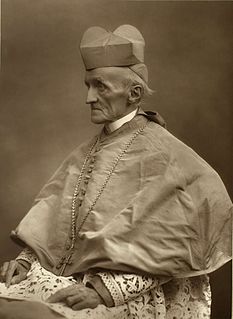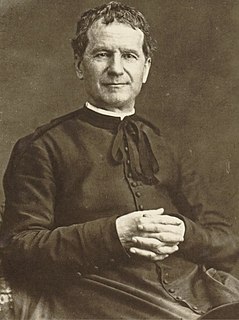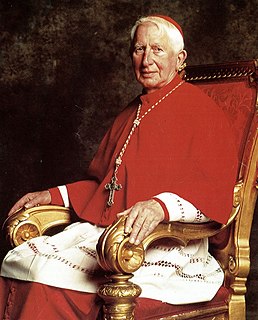A Quote by Colin McGinn
Our general repression of matters disgusting prevents us facing up to a serious health problem. If we are the 'god that shits,' then we are in full flight from ourselves. I even wonder whether religion itself and the whole idea of a god is produced by our self-disgust.
Related Quotes
Let us pause before the Child of Bethlehem. Let us allow our hearts to be touched, let us allow ourselves to be warmed by the tenderness of God; we need his caress. God is full of love: to him be praise and glory forever! God is peace: let us ask him to help us to be peacemakers each day, in our life, in our families, in our cities and nations, in the whole world. Let us allow ourselves to be moved by God's goodness.
God’s love sets us free from the need to seek approval. Knowing that we are loved by God, accepted by God, approved by God, and that we are new creations in Christ empowers us to reject self-rejection and embrace a healthy self-love. Being secure in God’s love for us, our love for Him, and our love for ourselves, prepares us to fulfill the second greatest commandment: To love our neighbor as ourselves.
When religion has said its last word, there is little that we need other than God Himself. The evil habit of seeking God-and effectively prevents us from finding God in full revelation. In the and lies our great woe. If we omit the and we shall soon find God, and in Him we shall find that for which we have all our lives been secretly longing.
There are two gods. The god our teachers teach us about, and the God who teaches us. The god about whom people usually talk, and the God who talks to us. The god we learn to fear, and the God who speaks to us of mercy. The god who is somewhere up on high, and the God who is here in our daily lives. The god who demands punishment, and the God who forgives us our trespasses. The god who threatens us with the torments of Hell, and the God who shows us the true path.
There are two gods. A god who casts us off because of our sins, and a God who calls to us with His love.
The whole story of creation, incarnation, and our incorporation into the fellowship of Christ's body tells us that God desires us, as if we were God, as if we were that unconditional response to God's giving that God's self makes in the life of the Trinity. We are created so that we may be caught up in this, so that we may grow into the wholehearted love of God by learning that God loves us as God loves God.
It is not what we do that matters, but what a sovereign God chooses to do through us. God doesn't want our success; He wants us. He doesn't demand our achievements; He demands our obedience. The Kingdom of God is a kingdom of paradox, where through the ugly defeat of a cross, a holy God is utterly glorified. Victory comes through defeat; healing through brokenness; finding self through losing self.
We live in a church culture that has a dangerous tendency to disconnect the grace of God from the glory of God. Our hearts resonate with the idea of enjoying God's grace. We bask in sermons, conferences, and books that exalt a grace centering on us. And while the wonder of grace is worthy of our attention, if that grace is disconnected from its purpose, the sad result is a self-centered Christianity that bypasses the heart of God.
After each failure, ask forgiveness, pick yourself up, and try again. Very often what God first helps us toward is not the virtue itself but just this power of always trying again. For however important chastity (or courage, or truthfulness, or any other virtue) may be, this process trains us in habits of the soul which are more important still. It cures our illusions about ourselves and teaches us to depend on God. We learn, on the one hand, that we cannot trust ourselves even in our best moments, and, on the other, that we need not despair even in our worst, for our failures are forgiven.
We should fix ourselves firmly in the presence of God by conversing all the time with Him...we should feed our soul with a lofty conception of God and from that derive great joy in being his. We should put life in our faith. We should give ourselves utterly to God in pure abandonment, in temporal and spiritual matters alike, and find contentment in the doing of His will,whether he takes us through sufferings or consolations.
What is the idea of God in heaven? Materialism. The Vedantic idea is the infinite principle of God embodied in every one of us. God sitting up on a cloud! Think of the utter blasphemy of it! It is materialism - downright materialism. When babies think this way, it may be all right, but when grown - up men try to teach such things, it is downright disgusting - that is what it is. It is all matter, all body idea, the gross idea, the sense idea. Every bit of it is clay and nothing but clay. Is that religion?
Praise consists in the love of God, in wonder at the goodness of God, in recognition of the gifts of God, in seeing God in all things He gives us, ay, and even in the things that He refuses to us; so as to see our whole life in the light of God; and seeing this, to bless Him, adore Him, and glorify Him.
Health is God's great gift, and we must spend it entirely for Him. Our eyes should see only for God, our feet walk only for Him, our hands labor for Him alone; in short, our entire body should serve God while we still have the time. Then, when He shall take our health and we shall near our last day, our conscience will not reproach us for having misused it.
God allows and at times causes us to go through the kinds of circumstances that strip away all falsehood and leave us with our real selves. God's ultimate intent is not to leave us faithless, but to leave us faith-full. There are few things as exhilarating as going through the fire and finding that you had the resilience to make it through. All of us wonder at times whether we have what it takes. God wants to bring us to a place where we have no doubt of the work He has done within us.









































